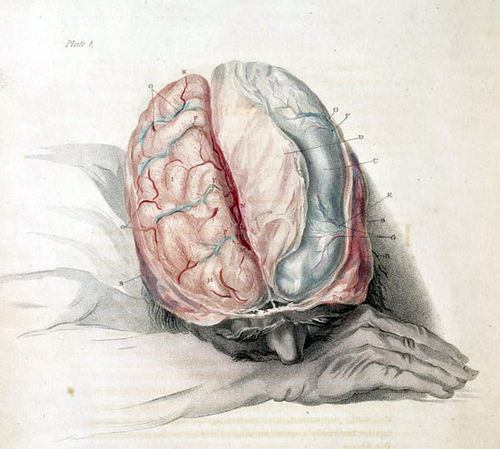Check out the fabulous blog of Dr. Katherine Morrison who is the author of our Online Course https://diabetesdietblog.com/
diet
Your Brain on Ketones | Psychology Today
The fat-fueled brain: unnatural or advantageous? – Scientific American Blog Network
Disclaimer: First things first. Please note that I am in no way endorsing nutritional ketosis as a supplement to, or a replacement for medication.
Source: The fat-fueled brain: unnatural or advantageous? – Scientific American Blog Network
You can read more on this site: BRAIN, LIVIN’ ON KETONES – A MOLECULAR NEUROSCIENCE LOOK AT THE KETOGENIC DIET
Second-Opinions Website
UK based website of researcher and author, Barry Groves, offering online nutritional information, and exposing dietary and medical misinformation.
Source: Second-Opinions index page
Origins and evolution of the Western diet: health implications for the 21st century
ABSTRACT
There is growing awareness that the profound changes in the envi- ronment (eg, in diet and other lifestyle conditions) that began with the introduction of agriculture and animal husbandry ?10 000 y ago occurred too recently on an evolutionary time scale for the human genome to adjust. In conjunction with this discordance between our ancient, genetically determined biology and the nutritional, cultural, and activity patterns of contemporary Western populations, many of the so-called diseases of civilization have emerged. In particular, food staples and food-processing procedures introduced during the Neolithic and Industrial Periods have fundamentally altered 7 cru- cial nutritional characteristics of ancestral hominin diets: 1) glyce- mic load, 2) fatty acid composition, 3) macronutrient composition, 4) micronutrient density, 5) acid-base balance, 6) sodium-potassium ratio, and 7) fiber content. The evolutionary collision of our ancient genome with the nutritional qualities of recently introduced foods may underlie many of the chronic diseases of Western civilization. Am J Clin Nutr 2005;81:341–54.
DOWNLOAD: Origins and evolution of the Western diet: health implications for the 21st century
Low-Fat Diet and Chronic Disease Prevention: the Women’s Health Initiative and Its Reception
ABSTRACT
The Women’s Health Initiative Randomized Controlled Dietary Modification Trial was designed to study a low-fat diet, a nutritional approach to prevention of chronic diseases that was considered promising. The negative findings from the trial were both unexpected and disappointing to nutrition authorities. The authors’ public responses to the findings articulated an unwillingness to believe the finding that a low-fat diet did not prevent breast or colon cancer or heart disease. The negative results should stimulate work on alternate hypotheses, and reconsideration of the long-standing proscription against dietary fat.
DOWNLOAD: Low-Fat Diet and Chronic Disease Prevention: the Women’s Health Initiative and Its Reception
The Evolutionary Basis for the Therapeutic Effects of High Protein Diets
Long term effects of ketogenic diet in obese subjects with high cholesterol level
Abstract
Objective: Various studies have convincingly shown the beneficial effect of ketogenic diet (in which the daily consumption of carbohydrate is less than 20 grams, regardless of fat, protein and caloric intake) in reducing weight in obese subjects. However, its long term effect on obese subjects with high total cholesterol (as compared to obese subjects with normal cholesterol level) is lacking. It is believed that ketogenic diet may have adverse effect on the lipid profile. Therefore, in this study the effect of ketogenic diet in obese subjects with high cholesterol level above 6 mmol/L is compared to those with normocholesterolemia for a period of 56 weeks.
DOWNLOAD: Long term effects of ketogenic diets
Ketogenic diets and physical performance
Abstract
Impaired physical performance is a common but not obligate result of a low carbohydrate diet. Lessons from traditional Inuit culture indicate that time for adaptation, optimized sodium and potassium nutriture, and constraint of protein to 15–25 % of daily energy expenditure allow unimpaired endurance performance despite nutritional ketosis.
DOWNLOAD: Ketogenic diets and physical performance


